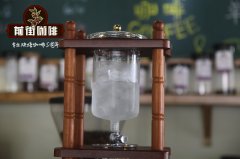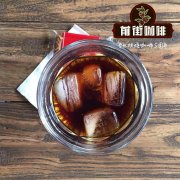What coffee beans are used in Kopi Luwak? what are the varieties and flavor of Kopi Luwak raw beans?

Professional coffee knowledge exchange more coffee bean information please follow the coffee workshop (Wechat official account cafe_style)
Kopi Luwak, a traditional specialty of Indonesia, is said to be one of the most expensive coffee in the world. Kopi Luwak is just an alias. Its official name is Kopi Luwak,Kopi, which means "coffee" in Indonesian, and Luwak is a wild animal called civet.
According to the clerk, civets like to choose the most ripe, sweet, juicy coffee fruits in coffee trees as food. But only the outer pulp of the coffee fruit can be digested, and the hard coffee beans will be excreted from the body. After this digestion process, coffee beans have changed, and then after several processes, such as selection, cleaning, drying, deodorization, processing and roasting, they become "Kopi Luwak". The longer the coffee beans are stored, the stronger the flavor will be.
The shop owner's wife said that Indonesians seldom use coffee machines. They like to grind the cat poop coffee beans into powder and then directly brew them with boiling water without adding milk to retain the original and unique flavor of the coffee. Therefore, the coffee brewed by Kopi Luwak is relatively thick, and there will be delicate residue at the bottom of the cup after drinking.
The coconut cat, also known as the civet, takes the seeds and fruits on the ground as the staple food, and its intestines and stomach cannot completely digest coffee beans. After the coffee beans are fermented in its stomach, as the coconut cat feces are excreted out of the body, they become "cat poop coffee beans" after washing and baking. Coffee beans digested by coconut cats will reduce the bitterness of the coffee and add a unique flavor, so it is highly respected by coffee drinkers.
And because the coffee beans are expensive and not easy to obtain, an industry that does not exist is emerging in places such as Indonesia and Thailand: people are catching coconut cats from the wild and keeping them in cages on coffee plantations. This harsh environment, which can only eat coffee beans, brings serious health problems for coconut cats. Recently, in the journal Animal Welfare, a study called the industry the "slave industry".
Foreign media Quartz reported: "although wild coconut cats pick up coffee beans from the road as snacks, these caged animals are only fed with coffee beans and are seriously undernourished. In addition, nocturnal animals are caged and are ravaged by daylight maladjustment and claustrophobia. Often as soon as the coconut cat is anxious, it begins to kill each other with its kind, nibble on its own body, and begin to excrete bleeding stool. So the coconut cat in the cage soon died. "
An investigator visited several Kopi Luwak farms and estates in Indonesia and the Philippines, and the operators claimed that their coffee beans came from "picking up wild feces", but the video and evidence secretly arranged by the investigators all pointed to the signs of stealing coconut cats on the farm, and they were all very unhealthy, with strange behaviors such as froze, turning in circles, shaking their heads and so on, presuming that it was these imprisoned animals. Suffering from animal depression and mental illness.
Important Notice :
前街咖啡 FrontStreet Coffee has moved to new addredd:
FrontStreet Coffee Address: 315,Donghua East Road,GuangZhou
Tel:020 38364473
- Prev

Kopi Luwak is bitter and tastes bad? How to cook Kopi Luwak with its original flavor and taste
For more information on coffee beans, please follow the coffee workshop (official Wechat account cafe_style). Coffee lovers must understand that it is difficult to backtrack when drinking coffee. Those who are stuck in the mud will only buy coffee beans, and they will not grind them in advance and drink them immediately to avoid losing their fragrance. Nowadays, with the bean grinder and high-pressure coffee machine in hand, it is not so easy to drink espresso. Kopi Luwak: Indonesia
- Next

What's the difference between Vietnamese coffee and ordinary coffee? why don't Vietnamese coffee use fresh milk? Vietnamese coffee.
Professional coffee knowledge exchange more coffee bean information please follow the coffee workshop (Wechat official account cafe_style) Coffee control all know that coffee is actually a necessity of life, do not drink for a day, the mind is in a trance. There are countless coffee shops in Vietnam, and the Vietnamese love coffee one of the best in Asia. It is said that in the early French colonial era, the French put coffee beans
Related
- Beginners will see the "Coffee pull flower" guide!
- What is the difference between ice blog purified milk and ordinary milk coffee?
- Why is the Philippines the largest producer of crops in Liberia?
- For coffee extraction, should the fine powder be retained?
- How does extracted espresso fill pressed powder? How much strength does it take to press the powder?
- How to make jasmine cold extract coffee? Is the jasmine + latte good?
- Will this little toy really make the coffee taste better? How does Lily Drip affect coffee extraction?
- Will the action of slapping the filter cup also affect coffee extraction?
- What's the difference between powder-to-water ratio and powder-to-liquid ratio?
- What is the Ethiopian local species? What does it have to do with Heirloom native species?

